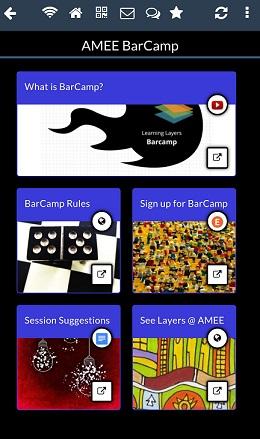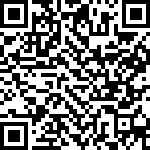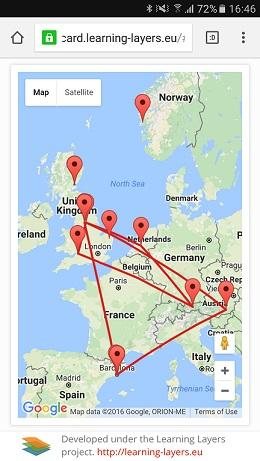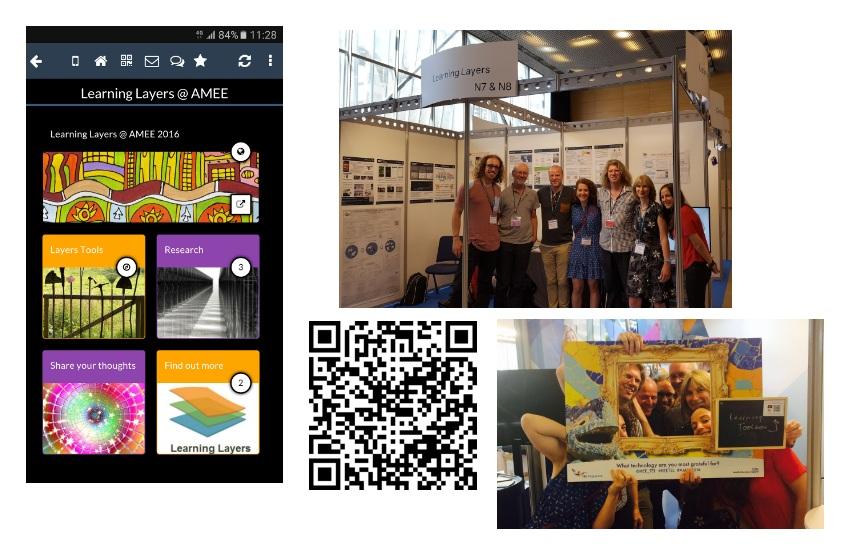A Technology-Enhanced Informal Learning Package for Conferences
Main impacts
- adopted in mainstream conference programme by a major international conference with 3000 participants and used in 5 other events
- 50% of reflections of workshop participants documented and available to others
- helped bridge formal and informal sessions
The situation before Layers
Highlights
Have you attended conferences, sat through back-to-back presentations with little opportunity for discussion, and wondered where the learning was happening? In contrast to this, did a chance conversation with someone over coffee lead to a fruitful discussion, a new insight or even a joint project? Many traditional conference formats prioritise presentation over discussion, with (informal) learning squeezed into the gaps.
Description
Traditional, large international conferences tend to be highly structured and formal in nature and do not explicitly support informal learning within the conference format.
- Submissions to the conference have to be made many months before the conference, which means that the work that is being presented and discussed is not the most up-to-date, timely or relevant.
- Research paper, short communication, poster & even symposium formats have a large bias towards presentation, with minimal time being given for questions on individual work and even less time given over to discussing or exploring links between different pieces of work.
- Many people feel that the best learning experiences they have at conferences are during the informal chats over coffee, lunch or into the evening. However, this means that the ‘best’ learning is actually sidelined, squeezed into the gaps in the conference programme and dependent on chance and people’s opportunities, in these gaps, to actually meet up with others with a shared interest.
What Layers did
Highlights
Learning Layers created and delivered an informal learning package for conferences, combining open activities in which discussion, exploration & informal learning can thrive, along with technology tools to support, strengthen and recognise this learning.
- A time within the programme to pause, think and discuss with others - the BarCamp.
- Recognition and tracking of informal learning - informal learning joy cards
- A space to showcase and try out technology to support informal learning - Learning Layers Exhibition stand
- Technology support for sharing and the collaborative development of ideas at the conference - Learning Toolbox BarCamp and Exhibition stacks
This full package was first implemented at the Association for Medical Education in Europe (AMEE) Conference in Barcelona in September 2016.
Description
Learning Layers created an informal learning package for conferences. This package has now been used at one large international conferences (AMEE 2016), as well as to support smaller events. The design of the package evolved out of the stakeholder network engagement work that Learning Layers undertook, specifically the dissemination activities where Learning Layers attended key stakeholder conferences (such as AMEE and OEB) to raise awareness of the project and the potential for technology to support informal workplace learning. The full informal learning conference package has four linked components:
- A BarCamp - to provide a space for informal learning within the main conference programme. The BarCamp sessions are only proposed on the day, all participants are encouraged to propose sessions, the sessions with the most votes are those that run. This provides the chance for people to discuss current work, follow-up on issues raised in the formal conference presentations in more depth and explore timely and topical subjects together.
Learning Layers @ AMEE BarCamp Video
- A Learning Toolbox stack for the BarCamp - Learning Toolbox is a tool developed by the Learning Layers project that allows you to easily create stacks (collections of materials, links, apps) that can be opened within the Learning Toolbox app (on your mobile phone or in a web browser). Using Learning Toolbox allowed us to share information, ideas and resources with participants ahead of the BarCamp and allowed easy creation and collation (within the stack itself) of reports & reflections from the BarCamp sessions both during and after the sessions.

Figure 1: AMEE BarCamp stack

Figure 2: Scan the QR code or go to https://api.ltb.io/show/CMKKE to download the AMEE BarCamp stack
- Informal learning ‘joy’ cards - to be given out as thanks & recognition when informal learning has occurred. Recipients scan the QR code and record online that they held the card before passing it onto the next person with whom they have an informal learning experience. The cards journey around the conference and beyond can be tracked online - showing how social, informal learning spreads.

Figure 3: AMEE joycards moving across Europe. To see up to date map go to http://joycard.learning-layers.eu and enter ‘alljoy’
- A space to explore technology for informal learning. An exhibition stand or ‘Show & Tell’ space (with an associated Learning Toolbox stack) in which tools to support informal learning can be demonstrated, discussed and explored.

Figure 4: Learning Layers Informal Learning Space at AMEE 2016. Scan the code or go to https://api.ltb.io/show/CZSKB to download the LTB stack used with the Exhibition stand
The situation after Layers
Highlights
-
AMEE conference participants were enthusiastic about and inspired by the Learning Layers informal learning package. “It’s been a joy to have time to think”
-
Learning Layers have already been invited to return with the informal learning package for AMEE 2017 and we are exploring with AMEE ways in which this can be extended (for example using the Learning Toolbox to support informal learning around ePosters).
-
The Learning Layers informal learning package approach has been adopted by others and used at other conferences, workshops and events.
Description
The full Learning Layers informal learning package was part of the AMEE 2016 conference and was very successful, engaging over 60 participants in the ‘informal learning’ package activities and leading to the adoption of the package in at least 5 more events within just 2 months.
Engaging and inspiring informal learners
Participants reactions were extremely positive and made it clear that they really valued greater importance and more time being given over to informal learning.
The conversation was rich and thought provoking … I felt that the Barcamp helped me in that process of unlearning and relearning some approaches to tackle issues around culture in my organisation
Natalie Lafferty (University of Dundee)
Brilliant session. Feeling inspired!
Laura Bowater (University of East Anglia) - BarCamp feedback
One of my highlights from #AMEE2016 was receiving a JOY card from @LearningLayers project. Can’t wait to pass it on.
Viktoria Joynes (University of Liverpool)
In fact the Learning Layers package appears in several summaries of the highlights of AMEE 2016:
-
Highlights and Food for Thought from #AMEE2016 mentions the BarCamp, Learning Layers, Learning Toolbox and the informal learning JoyCards.
-
The Learning Layers BarCamp and the informal learning JoyCard are two of the top 10 highlights of AMEE in My #AMEE2016. Innovating Faculty Development in Education.
Adoption of package beyond Learning Layers
The adoption of this informal learning package beyond Learning Layers has been rapid. In the 2 months following the success at AMEE 2016, we are aware that the informal learning package has already been adopted at 5 further events organised by ourselves and by others:
Organised by Learning Layers
- Informal Learning @ Work Knowledge Exchange (20th September 2016)
Organised by others (people who first participated in a Learning Layers event)
- Continuing Professional Development event at Oxford Brookes University (7th September 2016)
- Primary Care Training Company’s Healthcare Assistant Conference 2016 (13th September 2016)
- Project and tools design workshop at University of Dundee (16th October 2016)
- Leeds University Business School and Enviroment Teaching Innovations Event (19th October 2016)
- International Medical Education eXchange (IMEX) visit to University of Leeds (25th October 2016)
- Plans are in place for its use at other future events including AMEE 2017
AMEE have invited Learning Layers to return with the BarCamp and informal learning package to AMEE 2017. Together, we are exploring how the package can extended to use Learning Toolbox to provide support for informal learning around ePosters.
Impact that Layers created
Changed learning practices
-
The informal learning package was adopted within the mainstream conference programme by a major international conference (AMEE 2016) with over 3,000 participants.
-
Within 2 months of being introduced at AMEE, the informal learning package had been used at 5 other events organised by people who had attended the Learning Layers original.
-
Improved capturing and sharing of the results of informal learning sessions. Over 50% of the sessions from the AMEE and Informal Learning @ Work BarCamps had their reports/reflections written up and available to all participants (through the Learning Toolbox) by the end of the event.
-
Use of LTB combined with googledocs meant that multiple perspectives (notes from different participants) could be (and were) captured and shared from each session.
Bridging learning contexts
The informal learning package bridges between the formal context of the conference presentations and the informal context of the talk around the coffee stations. Where we have used the BarCamp approach alongside a formal conference or event we have observed that sessions are proposed by participants that give them an opportunity to explore and discuss some of the formal presentations in more depth. For example at AMEE 2016 one of the keynote speakers talked about ‘infinite games’ and one of the proposed BarCamp sessions then was “How can we use technology to introduce the infinite game to medical education”.
Improved take-up of Innovation
The BarCamp format allows for timely, up-to-date work, ideas and issues to be discussed (since sessions are proposed on the day and are voted on rather than formally reviewed), thus helping new ideas and innovations to be discussed earlier than they would be following a traditional conference format. The BarCamp format itself is an innovation that has been adopted by others very quickly following our introduction of it to AMEE 2016.
Links to other sections
- Tools
Further Reading
BarCamp at AMEE Case Study for MedEdPublish (in development)
Segar, A. (2016). What’s the best learning model for conference sessions?
Contributors
Graham Attwell, John Bibby, Sebastian Dennerlein, Rose Dewey, Raymond Elferink, Micky Kerr, Gilbert Peffer, Trudie Roberts (LEEDS), Patricia Santos, Christina Sargianni, Vladimir Tomberg, Tamsin Treasure-Jones
